Research Labs and Centers
Each department in the School of Public Health and Health Professions has its own discipline-specific research facilities as well as access to shared resources.
Our Research Labs:

The Aging and Technology Research Center is dedicated to promoting health and independent living among older adults and their caregivers. The center researches technological solutions to problems associated with aging.
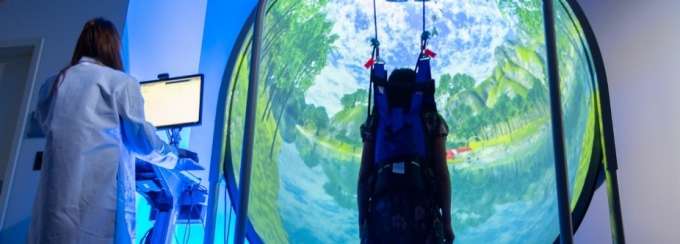
The Brain Function and Recovery Lab (BFR) uses neuromotor, neurocognitive, and neurophysiological measures to better understand sport-related, military-related, and intimate-partner violence-related acquired brain injury.
The lab also focuses on identifying cutting-edge interventions to facilitate recovery in brain injury populations. It is equipped with a state-of-the-art posturography machine and neuromodulation devices with unrestricted access to body-weight supported treadmill machine and motion-capture systems. This lab is also engaged in community-based research to identify approaches to increase knowledge of and access to health care in vulnerable populations of brain injury.
Contact:
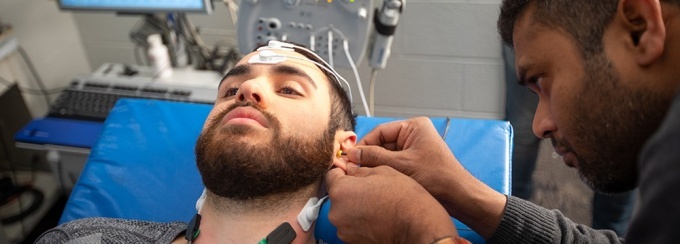
The Brain Plasticity and Neurorehabilitation Laboratory (BPNL) investigates mechanism of neurodegeneration following neurotrauma and occupational hazards, in translatable experimental animal models in a dedicated biomedical research facility equipped with in-house laboratory animal facilities along with unrestricted access to core facilities.
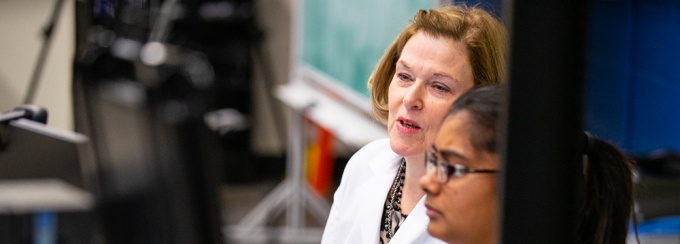
The Gait Analysis Lab investigates gait, balance and motor performance, exploring movement of individuals with motor impairments. The lab uses 12 cameras and reflective markers as part of a 3-D motion capture system, and wireless electromyography (EMG) sensors detecting muscle activation, to study how the human body walks through space.
Equipment available: The Gait Analysis lab is equipped with a Zero-G Gait and Balance System. This ceiling mounted system prevents falls by supporting a person's body and maintaining a steady level of body suport regardless of the person moves. This equipment is available for all faculty researchers at UB to use. If you'd like to schedule time with this equipment please email professor Sue Ann Sisto, suesisto@buffalo.edu.
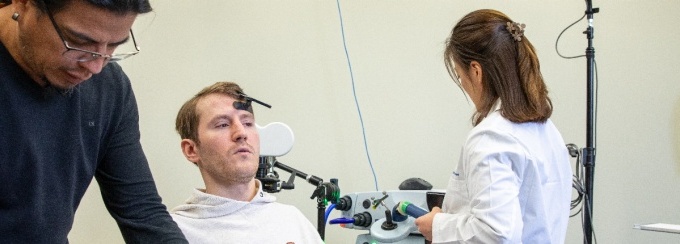
The Motor Control and Rehabilitation Laboratory studies how the brain controls movement and the ways to improve motor function in individuals with neurological impairments such as spinal cord injury and stroke.
The Motor Control and Rehabilitation Laboratory is equipped with state-of-the-art technology. The primary research tool is non-invasive brain stimulation devices such as transcranial magnetic stimulators, BiStim system and the MAG&More, which enable us to test and/or elicit plasticity in neural circuits within the brain.
The lab applies the stimulation with Brainsight, an MRI-based neuronavigation system, to stimulate areas of the brain with high precision and reproducibility. We can monitor the response from brain stimulation by using wireless electromyography in up to 16 muscles at a time to provide vast information about the motor system.
Contact:
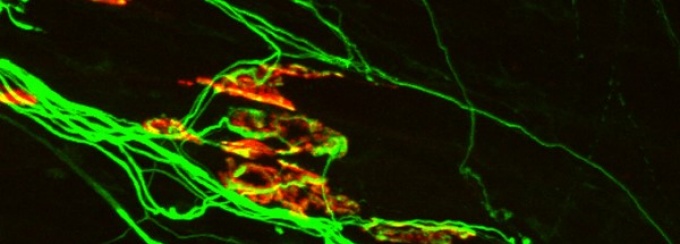
The Neuromuscular Physiology Lab investigates how communication between motor neurons and muscle fibers guides the development of the neuromuscular junction and how this communication breaks-down following trauma, disease, or aging.
Ultimately, we are interested in identifying potential targets to be used by regenerative medicine for treatment of denervation, sarcopenia or muscle-wasting diseases. The lab utilizes confocal microscopy, calcium imaging, muscle EMG, and cellular neurophysiology in transgenic animal models.
Contact:
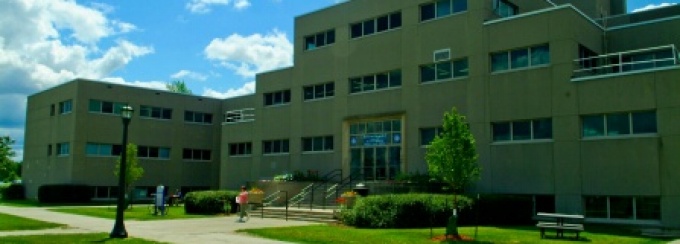
The Center for Health Research (CHR) is a full-service research facility available to all School of Public Health and Health Professions faculty conducting externally funded studies.
The CHR includes:
- A reception room/waiting area
- Six interview rooms, four of which are ventilated to accommodate smoking cessation research
- Two multi-purpose rooms
- A meeting/kitchen area
- A phlebotomy room
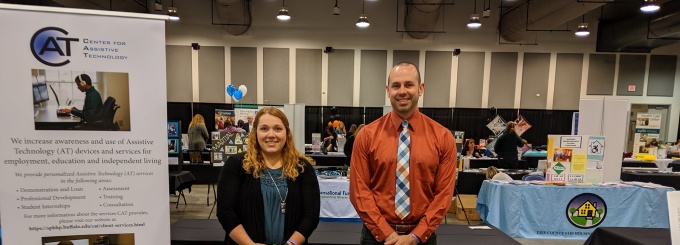
The Center for Assistive Technology (CAT) explores the functional utility of Assistive Technology (AT) devices and services in support of persons with disabilities.
Our federally sponsored research and development projects study, create and apply models, methods and metrics that link scientific research, engineering development and commercial production to transform knowledge into beneficial impacts. Our client service programs deliver assessment, training, demonstration and loan services to facilitate computer and environmental access in the context of school, work and independent living goals. Activities integrate multiple disciplines and span economic sectors to improve the quality of life for persons with any level of impairment, across all ages and within any environment.
Activities within these project areas are multidisciplinary and integrate government, academic, public health and business sectors to improve quality of life for persons with disabilities.




